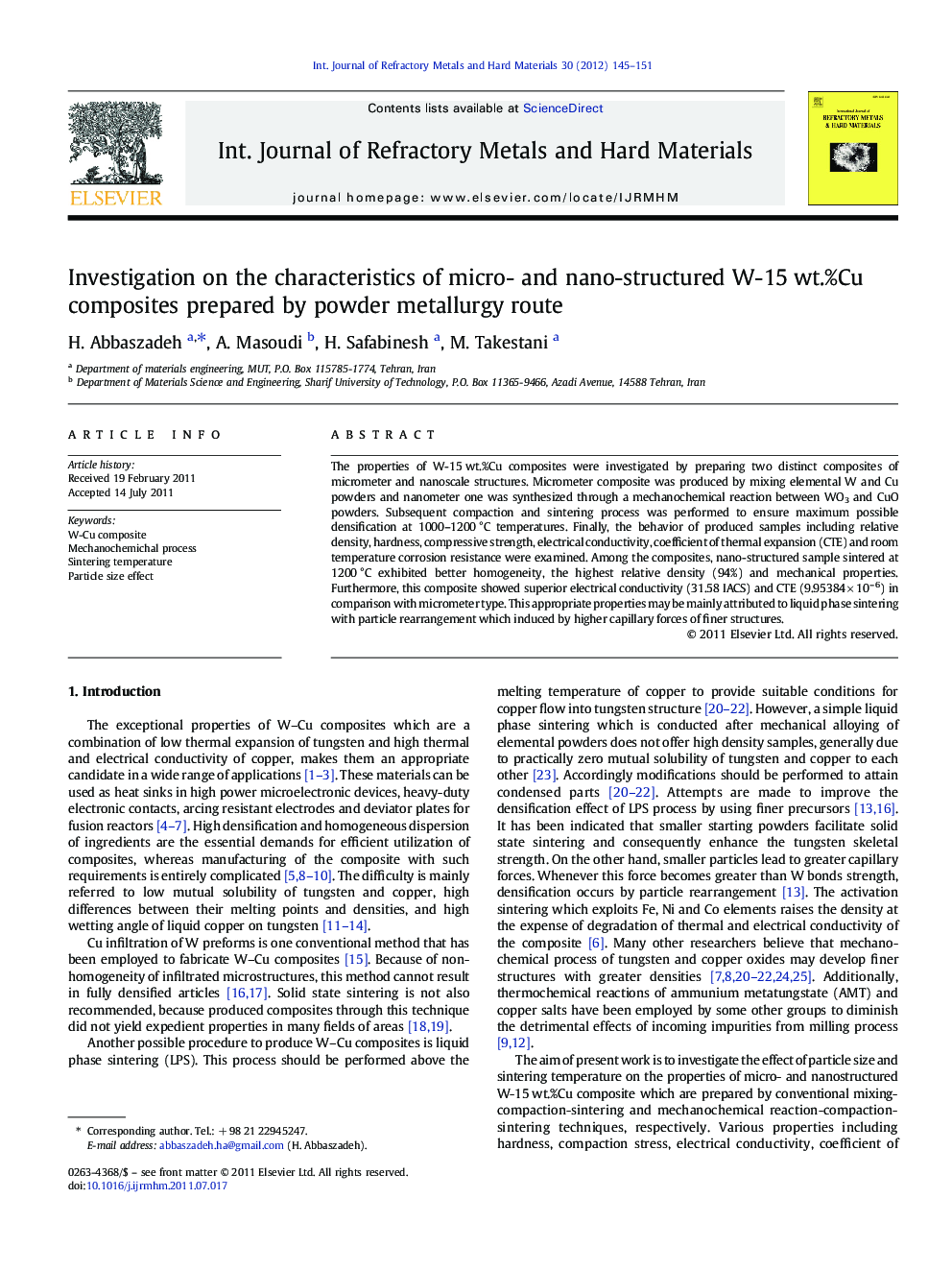| کد مقاله | کد نشریه | سال انتشار | مقاله انگلیسی | نسخه تمام متن |
|---|---|---|---|---|
| 1603769 | 1515990 | 2012 | 7 صفحه PDF | دانلود رایگان |

The properties of W-15 wt.%Cu composites were investigated by preparing two distinct composites of micrometer and nanoscale structures. Micrometer composite was produced by mixing elemental W and Cu powders and nanometer one was synthesized through a mechanochemical reaction between WO3 and CuO powders. Subsequent compaction and sintering process was performed to ensure maximum possible densification at 1000–1200 °C temperatures. Finally, the behavior of produced samples including relative density, hardness, compressive strength, electrical conductivity, coefficient of thermal expansion (CTE) and room temperature corrosion resistance were examined. Among the composites, nano-structured sample sintered at 1200 °C exhibited better homogeneity, the highest relative density (94%) and mechanical properties. Furthermore, this composite showed superior electrical conductivity (31.58 IACS) and CTE (9.95384 × 10– 6) in comparison with micrometer type. This appropriate properties may be mainly attributed to liquid phase sintering with particle rearrangement which induced by higher capillary forces of finer structures.
► W–Cu nano-composites are densified more easily than micronic composites.
► Coarser particles in micro-composite resisted against solid state sintering.
► Densification with liquid phase sintering yielded superior mechanical properties.
► Coefficient of thermal expansion (CTE) is not a simple function of density.
► Electrical conductivity can be explained by sintered density of samples.
Journal: International Journal of Refractory Metals and Hard Materials - Volume 30, Issue 1, January 2012, Pages 145–151